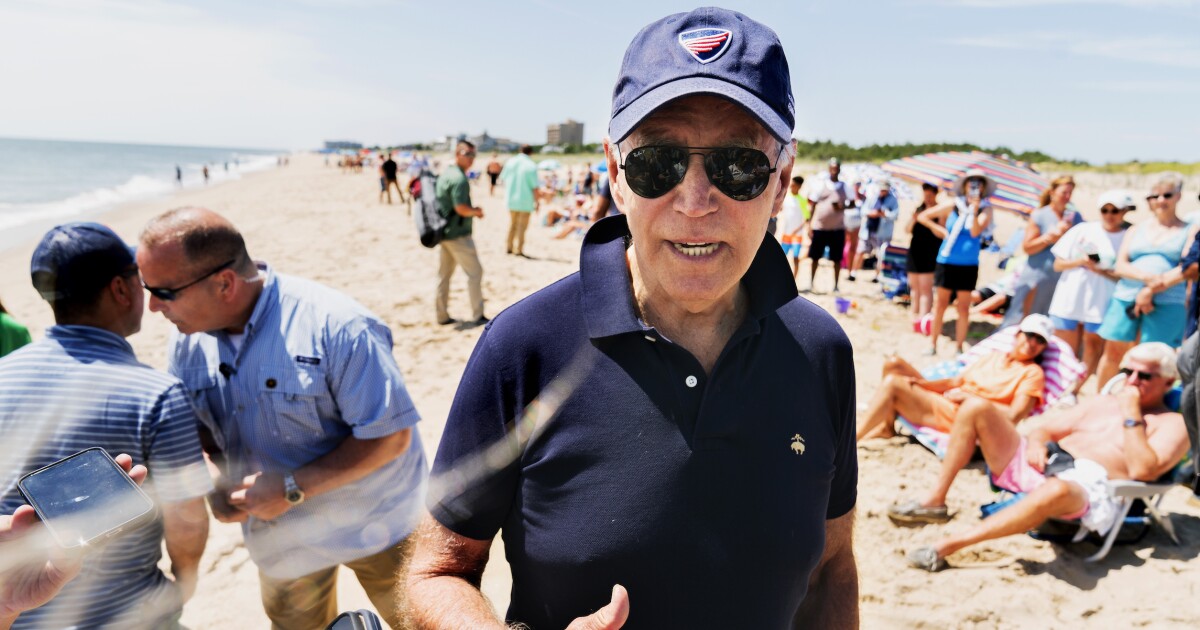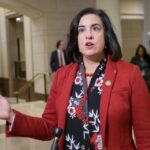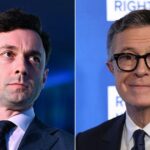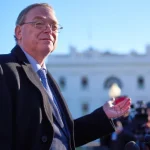

The White House has spent the last few days repeating that a recession is “not inevitable” despite economists and most people seeming to think the economy is headed that way.
President Joe Biden, National Economic Council Director Brian Deese, and Treasury Secretary Janet Yellen have all repeated in recent days that a recession isn’t imminent while touting positive aspects of the economy.
REPUBLICANS CRY FOUL OVER WHITE HOUSE STAFFERS WITH MILLIONS IN STUDENT LOANS
“First of all, it’s not inevitable,” Biden told the Associated Press last week. “Secondly, we’re in a stronger position than any nation in the world to overcome this inflation.”
The president followed that up Monday morning by saying he’d spoken with former Treasury Secretary Larry Summers, who himself is predicting a recession, and repeating that “there’s nothing inevitable about a recession.”
Deese said during a Sunday appearance on CBS’s Face the Nation that “not only is a recession not inevitable, but I think that a lot of people are underestimating those strengths and the resilience of the American economy.” He pointed to increased household savings and low numbers of people skipping credit card and mortgage payments as evidence.
The same day, Yellen told ABC News, “I don’t think a recession is at all inevitable,” while conceding that the economy is likely to slow going forward and that inflation is unacceptably high.
Despite the trio’s words, a recent poll found that more than 60% of CEOs globally said they expect a recession before the end of 2023, which echoes the prediction made by Summers.
A recession is generally defined as two consecutive quarters of negative gross domestic product growth. The first quarter of 2022 has already been deemed negative, so a recession could be confirmed when second-quarter numbers are released next month. For this reason, many pundits say the R-word is already upon us.
“We’re already in recession,” said conservative economist Stephen Moore. “The last six months of growth has been negative. The ship is capsizing, and the captain is saying everything is all right rather than getting the life jackets on. Employment may go negative in the next few months due to hiring freezes and layoffs. Housing sales have come to a standstill.”
It’s always up for debate how much influence any president has over the economy. Nonetheless, presidents often take credit for economic growth and take blame from voters when it slows. Biden’s job approval rating on the economy is just 34%, according to the RealClearPolitics polling average.
Yet Biden continues to insist that a recession may not be in the cards — and he persists in downplaying those who say it’s likely.
“No, the majority of them aren’t saying that,” the president said Monday in a response to a question about a recession being “more likely than ever.”
“Don’t make things up,” he continued. “Now you sound like a Republican politician. That’s a joke — that was a joke.”
The odds of a recession have surged to 72%, according to Bloomberg Economics models, as the Federal Reserve raises interest rates to counter inflation. The Fed announced last week that it would hike its benchmark interest rate by 0.75%, marking the largest single increase since 1994.
Despite the growing fears, or perhaps because of them, Democratic strategist Brad Bannon feels it’s important for the White House to reassure the public of the economy’s strengths.
“Most Americans do believe we’re in a recession now, and if we’re not, I think it’s good for the administration to say that,” he said. “It may not impress a lot of people, but the unemployment rate is ridiculously low. There are a lot of good things happening with the economy.”
CLICK HERE TO READ MORE FROM THE WASHINGTON EXAMINER
Biden is still trying to get some of his agenda through Congress, such as efforts to lower prescription drug prices, provide tax incentives to reduce utility bills, and raise taxes on corporations. Bannon says working to get such a deal passed and talking about it are the most important things the president can do now to help his standing with voters in November.
“It will all depend on what the economy looks like,” he said of the midterm elections. “If we’re in a serious recession, obviously it’s going to hurt the Democrats.”







